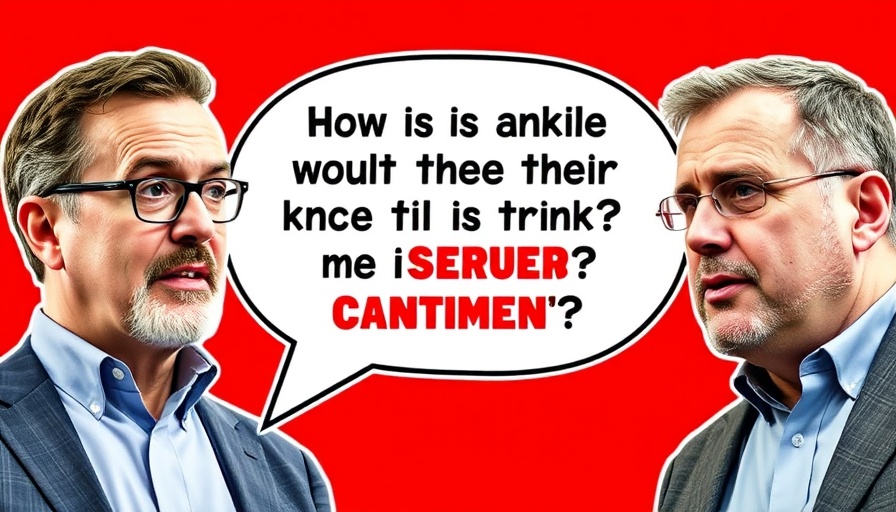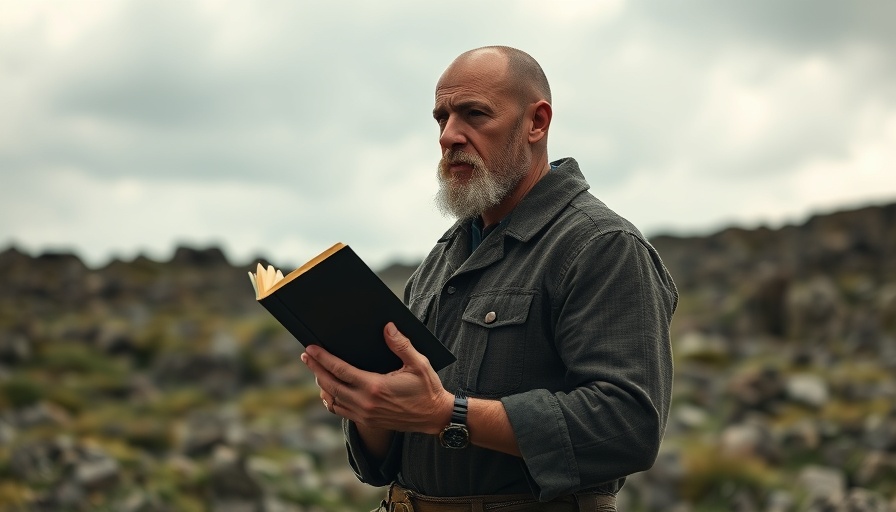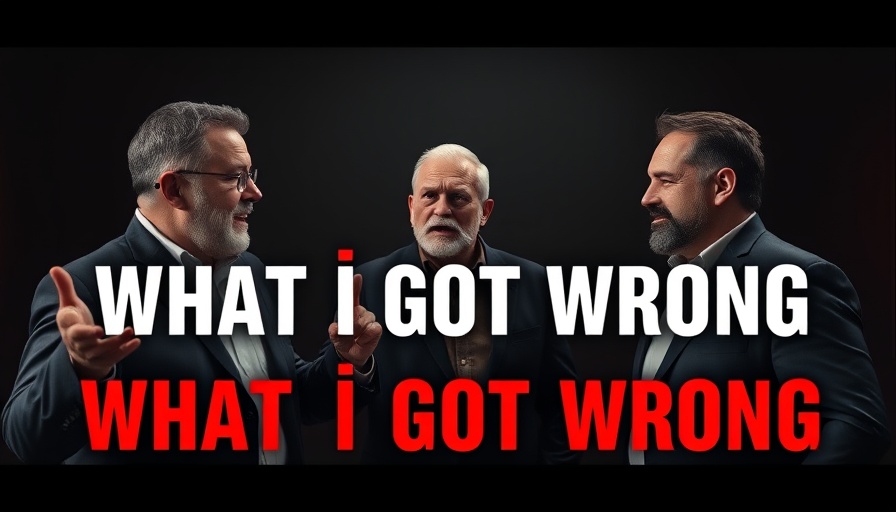
Understanding Conflict Through the Lens of Faith
In today's digital landscape, public figures often find themselves in the eye of a media storm. The recent incident featuring Andrew Tate serves as a poignant reminder of the complexities that arise when personal beliefs intersect with public scrutiny. While Tate's flair for controversy ensures he remains in the spotlight, it is crucial to examine the underlying principles at play in both his actions and the reactions they provoke. Such situations present an opportunity for believers and non-believers alike to engage with the values of empathy, forgiveness, and reflection.
In 'Tate Loses It, Sues Everyone!', the discussion dives into the complexities of public conflict through Tate's legal battles, exploring key insights that sparked deeper analysis on our end.
The Power of Narrative in Public Disputes
Every controversy offers a story—a narrative shaped by the parties involved, their motivations, and the reactions of those watching. In Tate’s case, his lawsuits against various entities reveal the adversarial nature of modern discourse. This situation calls for a deeper understanding of how narratives can hurt or heal. For students of theology and culture, the exploration of these stories can yield vital insights into issues of justice, morality, and community.
Cultural Critique: What Can Be Learned from Tate's Turmoil?
Tate’s approach has garnered both vocal support and strong opposition, making him a case study in cultural critique. By examining the cultural context behind his controversial statements and actions, we can gain clarity on broader societal dynamics. This critique encourages us to reflect on the values we uphold and how they play out in the public sphere. It prompts discussions on how faith informs our understanding of justice and accountability.
Faith in Action: Navigating Conflict with Grace
For individuals watching Tate's saga unfold, the implications of his confrontations go beyond mere entertainment. They underscore the importance of approaching conflict with grace. As believers, we are reminded of biblical principles that encourage resolution and reconciliation. In a world often marked by polarization, how can we embody these values in our daily interactions? This question may guide youth and church leaders in strengthening their communities against the tide of divisiveness.
Future Predictions: What Lies Ahead for Public Figures?
As media evolves, the manner in which public figures engage with their audiences will continue to transform. The rise of social media and the digital age has fostered an environment where every word can spark outrage or support instantaneously. How will this impact the way we approach discussions surrounding morality in public discourse? The implications for faith communities can be significant as they strive to project values of love and understanding in an often contentious arena.
Common Misconceptions About Public Conflict
Many people fall into the trap of believing that public disputes are merely distractions from important issues. However, Tate's case demonstrates that they frequently reflect deeper societal struggles regarding identity, belief, and authority. Challenging these misconceptions requires awareness and thoughtful engagement, guiding audiences toward a more nuanced understanding of what is at stake.
The Call for Active Thought: Engaging in Dialogue
In light of Tate's legal battles and the discussions they incite, it is essential for believers and skeptics alike to engage in thoughtful dialogue. This engagement does not have to come from a place of conflict but rather from a shared desire to understand one another's perspectives. By fostering an environment where open discussions about belief, ethics, and societal norms are welcomed, youth, parents, and church leaders can lay the groundwork for a stronger, more united community.
Taking Action: How You Can Join the Conversation
As we navigate this turbulent media environment, consider how your voice can contribute positively to the dialogue. Seek out opportunities to discuss difficult topics with grace and empathy, whether in a community group, a classroom, or a church setting. By doing so, you not only strengthen your faith but also create spaces where diverse perspectives can coexist and lead to meaningful understanding.
In conclusion, the recent developments surrounding Andrew Tate shed light on the multifaceted nature of conflict in public life and its implications for personal faith. As we analyze these themes, let us strive for a deeper understanding of our own beliefs and how they interact with the world around us.
 Add Row
Add Row  Add
Add 








 Add Row
Add Row  Add
Add 

Write A Comment